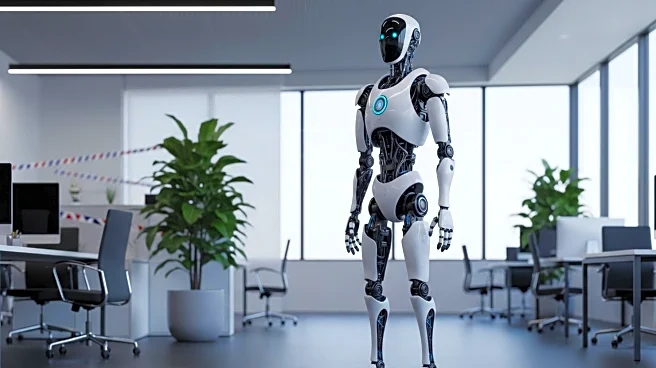What's Happening?
Salesforce, a major cloud software company, has announced layoffs affecting 262 employees in San Francisco, as part of a broader trend of job reductions influenced by the adoption of artificial intelligence (AI). CEO Marc Benioff has been vocal about AI's role in transforming the workforce, claiming that AI is performing up to 50% of the work at Salesforce. This shift is part of a larger movement in Silicon Valley, where companies are increasingly prioritizing efficiency over traditional perks and flexible work conditions. The layoffs are part of a series of reductions that have seen Salesforce cut thousands of jobs globally, as the company integrates AI tools like Agentforce to enhance productivity.
Why It's Important?
The integration of AI in the workforce is reshaping employment dynamics, particularly in tech hubs like San Francisco. While AI promises increased productivity, it also poses challenges for workers whose roles are being automated. This shift could have significant implications for the local economy, as Salesforce is a major employer in San Francisco. The layoffs reflect a broader trend in the tech industry, where companies are balancing the benefits of AI with the social and economic impacts of reduced human labor. As AI continues to evolve, it may create new opportunities for skilled workers, but also exacerbate job insecurity for others.
What's Next?
Salesforce's continued focus on AI-driven efficiency suggests further workforce adjustments may occur. The company's upcoming Dreamforce conference could provide insights into its future strategies and the role AI will play. Local authorities and economic development offices may need to address the impact of these changes on the community, offering support and retraining programs for affected workers. The broader tech industry will likely monitor Salesforce's approach as a case study in AI integration, influencing similar strategies across Silicon Valley.
Beyond the Headlines
The ethical implications of AI-driven layoffs raise questions about corporate responsibility and the balance between technological advancement and workforce stability. As AI becomes more prevalent, companies may face pressure to ensure fair transitions for displaced workers, potentially leading to new policies or regulations. The cultural shift from a people-oriented workplace to one focused on automation could alter employee relations and company culture, challenging traditional notions of corporate identity.









